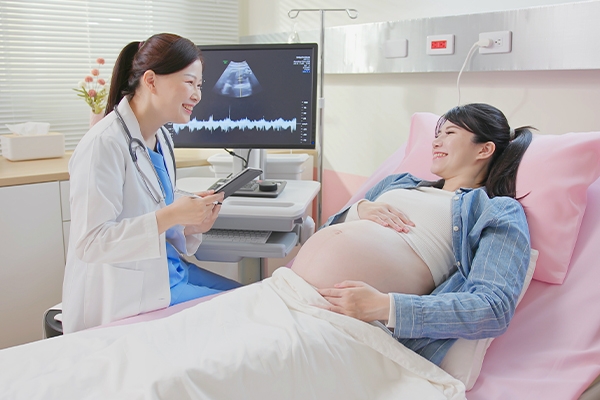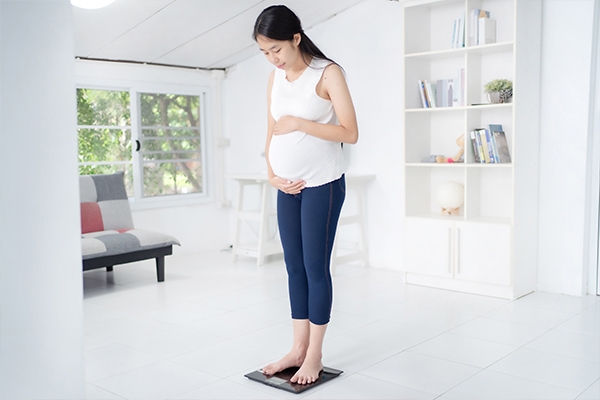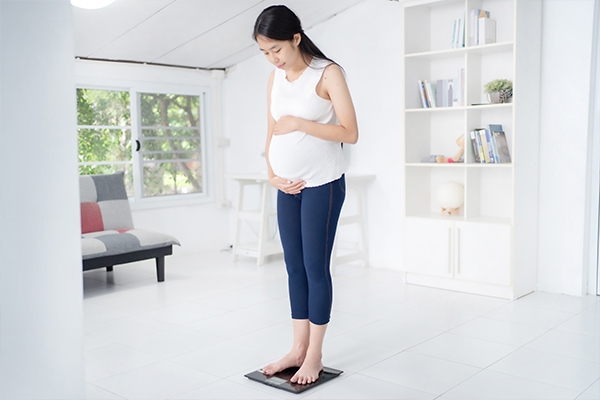Getting Ready for Your Pregnancy

Having children after getting married is the aspiration of many couples. To ensure a healthy and happy pregnancy, you can take several important steps.
After getting married, you might be thinking about starting the journey of becoming a mother. You start reading articles about pregnancy, looking at baby names, and checking out baby essentials.
Mentally, you are ready to welcome your little one. So, now is the time to keep your body as healthy as possible for a healthy pregnancy and baby. Come on, see the guide.
1. Get to know your menstrual cycle (if you haven't already)

Understanding your menstrual cycle can help you determine the best pregnancy time. Keep track of when your period starts and ends. Pay attention to menstrual characteristics and learn the signs of ovulation, such as clear and elastic cervical mucus and an increasing basal body temperature. There are various mobile apps available to help you track cycles easily.
2. See a gynecologist

Examinations before or during pregnancy are critical to ensuring the health of both you and your future baby.
The doctor will review your medical history, assess any risks, and provide advice for a healthy pregnancy, including tests or vaccines you may need, recommended vitamins, medication to avoid, and how to manage any existing health conditions.
3. Dental care

Before becoming pregnant, it is important to schedule regular dental cleanings and checkups before pregnant to maintain good dental and gum health. It is crucial not just for aesthetics but also for the health of you and your fetus.
4. A healthy and balanced diet

Remember to maintain a balanced and healthy diet during pregnancy. It's important for your health and the development of your baby.
Ensure that your meals include a variety of whole grains, vegetables, fruits, and lean proteins, and don't forget to drink plenty of water.
Avoid consuming chips, fried foods, soda, and other fast foods with empty calories. To stay motivated, consider involving your partner in making healthier food choices.
5. Pay attention to your ideal body weight

Keep an eye on your body weight and aim for a healthy range. Being either underweight or overweight can cause complications. Being overweight increases the risk of developing diabetes and hypertension while being underweight can also make it challenging to conceive.
6. Take folic acid

Folic acid is essential for the health and development of the fetus and helps prevent birth defects like spina bifida and anencephaly. It's recommended to start taking 400 micrograms of folic acid daily before pregnancy and continue at least during the first trimester. Folic acid aids in DNA formation and development of the fetus's brain and nerves in the womb.
7. Stay fit with regular exercise

Staying active while trying to get pregnant has numerous benefits. Exercise helps maintain an ideal body weight, reducing stress, and feeling comfortable during pregnancy.
Some sports tips are choosing activities you enjoy like walking, swimming, or yoga, starting slowly and gradually increasing the intensity and duration, and listening to your body and resting when needed.
8. Avoid bad habits

Making a plan to quit smoking, vaping, and illegal drug use is essential. Limit caffeine consumption to 200 mg per day. Alcohol should be avoided completely while trying to conceive and throughout pregnancy.
This is not only for the health of you and your baby but also to increase your chances of getting pregnant.
9. Learn about your family's genetic history

If you, your partner, or a close relative (parent, sibling, aunt, or uncle) has a history of birth abnormalities or congenital medical conditions, there may be a higher risk of a baby with the same abnormality.
Consider undergoing a simple blood or saliva test to find out whether you carry the gene for cystic fibrosis, fragile X syndrome, Tay-Sachs disease, or sickle cell anemia.
10. Manage stress

Managing stress is good for your health and happiness. Reducing stress allows you to think more clearly, make decisions with confidence, consider options rationally, and improve your relationships.
High levels of stress can directly impact your menstrual cycle, leading to irregular menstruation, which can affect your ability to get pregnant.
Be aware of danger signs
Pregnancy lasts about 40 weeks. These weeks are divided into three trimesters. The first trimester is the time between fertilization of the egg by sperm (fertilization) and the 12th week of pregnancy.
During the first trimester, women experience numerous changes in their bodies. This is normal because, at this time, the body produces hormones that affect almost every organ.
The first sign you may be pregnant is a missed period. As the first few weeks pass, some women experience the following:
- fatigue
- abdominal pain
- nausea
- mood swings
- tender breasts
- indigestion
- weight gain
- headache
- craving certain foods
- aversion to certain foods
Although not all pregnant women experience this, this is normal. You don't need to panic if you feel the symptoms above. You should be aware of if you experience the following things:
- bleeding from the vagina
- painful urination
- sudden or ongoing stomach ache or cramps
- severe headache
- swelling in the face, hands, or feet
- blurred vision, seeing spots before the eyes
- itching, especially on the hands or feet
- noticeable change in the baby's movements
- excessive or odorous vaginal discharge or the sensation that your water has broken.
Remember that you won't be pregnant forever. Soon, you’ll be able to enjoy all the food and activities that you love again.
If you feel signs of pregnancy or think your pregnancy is having problems, immediately contact a doctor or click WhatsApp. We are here to assist you have a healthy pregnancy.



